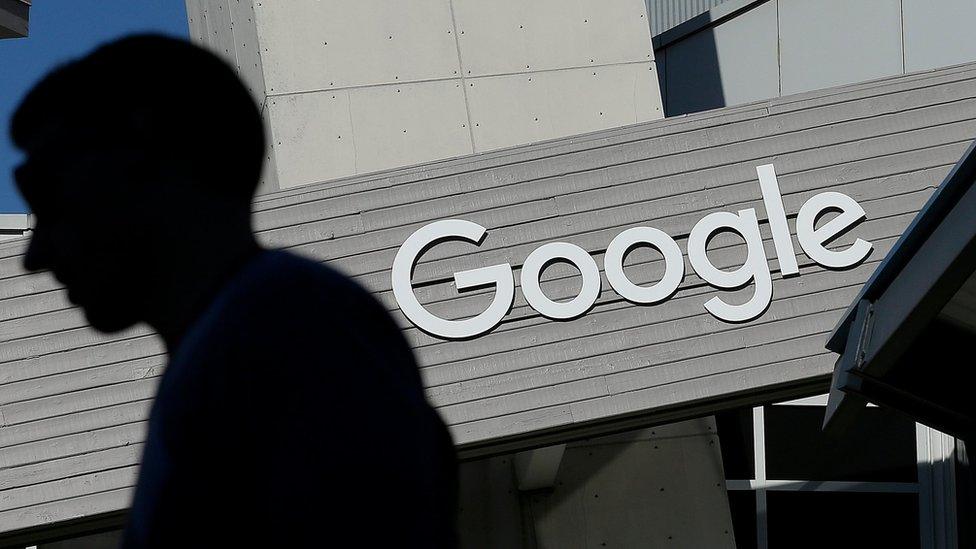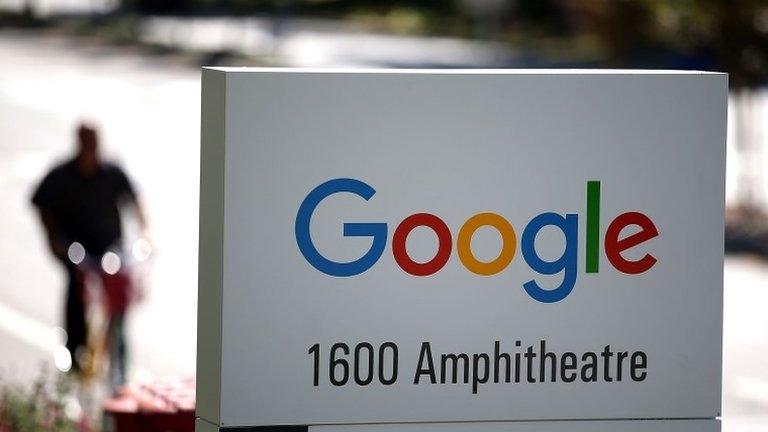Google fights French 'right to be forgotten' order
- Published

Google has appealed to France's highest court after the country's data watchdog ordered it to delete some of its search results globally.
In 2015, the Commission on Informatics and Liberty (CNIL) said Google should respect French "right to be forgotten" rulings worldwide.
But Google said the ruling could lead to abuse by "less open and democratic" countries.
The company is now appealing against a 100,000-euro (£76,000) CNIL fine.

What is the 'right to be forgotten'?
The "right to be forgotten" refers to a landmark ruling passed by the European Union's Court of Justice (ECJ) in May 2014.
It gives people the right to have results linked to their name removed from search websites, if they "appear to be inadequate" or "irrelevant".
Google says results can end up removed "even when those links point to truthful and lawfully published information like newspaper articles or official government websites".
Companies offering services to European citizens must comply with the ruling, even if their websites are not hosted in Europe.
Google said it had reviewed almost 1.5 million requests, of which about 40% resulted in the removal of a search result.

What has Google been ordered to do?
Google has previously said it does remove results when a valid "right to be forgotten" request is made.
However, it currently does not remove the affected search results from all versions of its website worldwide.
People using Google in Europe cannot find the deleted results using any version of the search engine - but people outside Europe can see the affected search results when they use a non-European version of the website such as google.com.
The CNIL wants Google to remove the affected search results globally.
It has pointed out it is relatively simple for Europeans to access international versions of Google and find the deleted results.

Why has Google refused?
Google has argued that a French authority such as the CNIL should not "impose measures outside of the nation's borders".
"For hundreds of years, it has been an accepted rule of law that one country should not have the right to impose its rules on the citizens of other countries," said Kent Walker, the company's general counsel.
In an open letter, external published in French newspaper Le Monde, Google said it had already received requests from countries to block content worldwide that was illegal locally.
"If French law applies globally, how long will it be until other countries - perhaps less open and democratic - start demanding that their laws regulating information likewise have global reach?" it said.
"This order could lead to a global race to the bottom, harming access to information that is perfectly lawful to view in one's own country.
"This is not just a hypothetical concern. We have received demands from governments to remove content globally on various grounds.
"We have resisted, even if that has sometimes led to the blocking of our services."
According to AFP, Google expects the Council of State, France's highest court, will take at least a year to review its appeal.
"We look forward to the court's review of this case," said Mr Walker.
- Published21 September 2015
